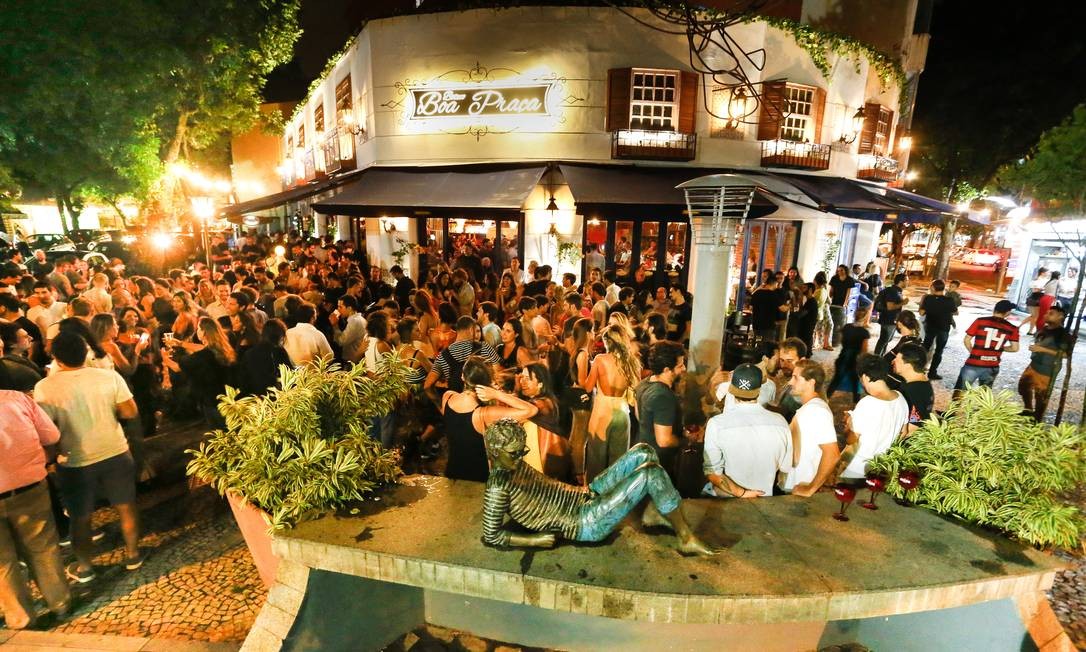RIO DE JANEIRO, BRAZIL – On Saturday, September 5th, Brazil reached the worrying mark of 4,123,000 infections by the novel coronavirus, with 126,203 deaths. Between Friday and the first day of the long weekend, 628 people died and over 30,000 were infected.
However, it seems that part of the population has trivialized the disease. During this weekend holiday, bars, snack bars, boardwalks, and beaches were crowded. The traffic jams increased at the end of working hours on Friday, September 4th, heralding an abnormal normality.
In Rio de Janeiro, where lethality rates are the highest in the country (above seven percent), according to Fiocruz, the city hall permitted swimming, emphasizing the mandatory wearing of masks on beachfront sidewalks, and banned tents and pedestrians on the sand. All such recommendations were ignored by beachgoers who recklessly failed to wear masks and promoted crowds.

In Cabo Frio, in the Lake District 100 kilometers from the capital, crowding was the norm. Hotels in the region have the maximum occupancy allowed by law, which is 40 percent. The projection was that over 125,000 vehicles would drive to the location. In the capital’s south zone, the sands of Ipanema, Copacabana, and Flamengo beaches were crowded.
At night, the bars in Leblon were thronged. The Marvelous City records a frightening lethality rate (3.3 percent) and totals 232,747 cases of Covid. Walter Cintra, a sanitary doctor and member of the Getúlio Vargas Foundation (FGV), showed concern: “What happened in Rio is very worrying and we will not see the impact for another two weeks.”
On the São Paulo coast, it was no different. The beaches of Santos, in the Baixada Santista, were full of tourists, parasols and sunbeds were piled up, something common in the nine cities along the south coast of São Paulo. The atmosphere is that of summer vacations. In Praia Grande, Ubatuba, due to the lack of space on the sand, there was crowding even in the ocean.
In Brazil’s Northeast, the sand is ablaze. In Jericoacoara, on the west coast of Ceará State, hotels are fully booked, which made the place reach the Twitter trending topics. Vendors are cheering the return of tourists, everything seems normal. In the capital Fortaleza, the situation is calmer: Futuro Beach saw modest activity.
In Pernambuco, the beaches of Boa Viagem and Porto de Galinhas were the most sought after, under parasols, walking on the sand or cooling down in the ocean waters, a crowd could be seen.
Aracaju in Sergipe, however, bucks the trend and continues with strict security measures: on the shore, bars and restaurants are still closed, hotel occupancy is low and the beaches are quiet.
At the Guarapari beach resort, in the metropolitan region of Vitória (Espírito Santo State), vendors and beachgoers were banned from remaining on the beaches until Friday, September 4th. With the opening for the Independence Day holiday, residents took to the beaches and the atmosphere was one of relaxation and normality.
Waterfalls are also major attractions during this holiday period. In Bahia, the Chapada Diamantina hosted a great number of tourists; in Lençóis the hotel occupancy rate stands at 80 percent. In the outskirts of Brasília, the cities of Pirenópolis and Alto Paraíso (Goiás State), with their attractive waterfalls, also recorded a high rate of visitors. In the city of Alto Paraíso, located in Chapa dos Veadeiros, hotels and inns were fully booked.
But not everything is a celebration on social media. Many people, concerned about the health and safety of the people who live and work in these cities, frown on the attitude of vacationers, people who no one knows what kind of health measure they adopted during the pandemic, but now realize that the most noticeable aspect of the holiday is the sloppiness and loosening of safety standards.
The balance of all this “flexibilization” will come in two weeks and will serve as an alert to the municipal and state governments for the long weekend terminating on Monday, October 12th, a national holiday.
Source: Fórum

